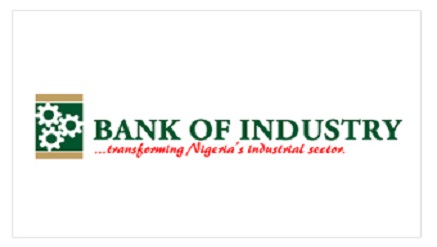E-Financial
UBA Well-Positioned to Benefit from Recovery Trends in 2021- Elumelu

United Bank for Africa (UBA) Plc, pan African financial institution, has assured its teeming shareholders and investors of even greater returns in the coming months, with the bank having established a diversified business model that ensures impressive performance even in periods of uncertainty, across its geographical network.

l-r: Group Managing Director/CEO, Mr. Kennedy Uzoka and Group Chairman, Mr. Tony Elumelu, at the 59th Annual General Meeting of United Bank for Africa(UBA) Plc, held in Lagos on Thursday
Tony O. Elumelu, group chairman, UBA, who gave this assurance to shareholders at the 59th Annual General Meeting at the UBA Head Office, on Thursday April 1, explained that the bank has made strategic decisions that will strengthen its resolve to earn the industry leadership that it has envisioned in Nigeria, Africa and globally.
“We spearheaded strategic investments in our digital banking and technology platforms to further promote self-service banking; we have also focused on enhancing the capabilities of our people through various online capacity development programmes,” Elumelu added, “Our African operations (ex-Nigeria) have contributed approximately 55% of our profits for the year, illustrating that we are truly a pan-African bank.”
He further explained that the bank remains committed to ensuring its viability amid an ever-changing business environment and to continue be a role model for African businesses by showcasing the best of Africa to the world.
“The work we have done in strengthening our governance structures Group-wide and in improving our business and operating models in 2020 positions our bank to benefit from these recovery trends and to achieve significant market share gains across our operations,” he noted.
At the end of the 2020 financial year, UBA’s profits grew remarkably by 27.7 percent to N113.8 billion, compared to N89.1 billion recorded at the end of the 2019 financial year, whilst profit before tax was impressive at N131.9 billion, compared to N111.3 billion at the end of the 2019 financial year.
Gross earnings grew by 10.8 percent to N620.4 billion, compared to N559.8 billion recorded in the same period of 2019 whilst total assets also grew by 5.6 percent to an unprecedented N7.7 trillion for the year under review.
In its usual tradition of rewarding shareholders, the bank proposed a final dividend of N0.35 kobo for every ordinary share of 50 kobo, bringing the total dividend for the year to N0.52 kobo as the bank had paid an interim dividend of N0.17 kobo earlier in the year.
Shareholders at the meeting commended the bank’s decision to plough-back some of its profits into business consolidation, adding that these times call for prudent and effective management of financial resources for all businesses especially those with high shareholding rate such as UBA.
Sir Sunny Nwosu, one of the shareholders, who spoke at the meeting, commended the board and management of the bank company for keeping up with its activities despite the Covid-19 pandemic and its resultant effect on major businesses.
Whilst advising the company to gear up efforts to increase dividends in the next financial year, Nwosu praised UBA’s for ensuring that the African subsidiaries performed well by contributing 55% to the Group’s business.
Nonah Awoh, another shareholder, who agreed with the improvement recorded from the bank’s Ex-Nigeria’s subsidiaries, encouraged the management to boost other subsidiaries with the needed resources to help them perform even better in the current financial year.
Kennedy Uzoka, managing director/chief executive officer, who responded to shareholders’ comments at the meeting spoke on the reduced dividend pay-out this year, explaining that the bank had decided to be conservative to further strengthen the business.
He said, “As an institution that has been in operations for 72 uninterrupted years, UBA wants to continue to perform optimally. In line with this, we have used most of our funds to prepare for unforeseen challenges. Given the trajectory and the resilience of our business, we can assure you that we will meet and surpass the expectation of you our shareholders.”
Continuing, he said, “We have recalibrated our business structure, starting from Lagos and extending to the South-South. We have bolstered them with the necessary leadership to achieve our aim. We believe that with these measures we have put in place, our Nigerian business will give the rest of Africa a good fight,” Uzoka said.
United Bank for Africa Plc is a leading Pan-African financial institution, offering banking services to more than twenty-one million customers, across over 1,000 business offices and customer touch points.
Operating in 20 African countries with presence in the United States of America, the United Kingdom and France, UBA is connecting people and businesses across Africa through retail; commercial and corporate banking; innovative cross-border payments and remittances; trade finance and ancillary banking services.
E-Financial
CBN Expresses Concern Over Foreign Investments in Nigeria Fintechs

The Central Bank of Nigeria in its 2025 Fintech Policy Insight Report, has raised concern over Nigeria’s fintech sector heavily dependent on foreign investment, exposing it to swings in global markets.

The report said the sector has shown resilience despite global economic pressures, but warned that reliance on external capital leaves it vulnerable to market fluctuations.
It would be recalled that startups in the country raised $520m in equity funding in 2024, down from about $747m in 2019, when Nigeria captured roughly 37 per cent of all African startup investment.
This performance, amid significant global macroeconomic gyrations, underscores Nigeria’s position as a key hub for financial innovation. The sharp rise in interest rates in advanced economies during 2022 contributed to a slowdown in venture capital funding.
“These dynamics highlight the importance of developing domestic funding avenues, such as leveraging Nigeria’s capital markets, to reduce currency risk and sustain fintech growth,” the apex bank stated.
Olayemi Cardoso, CBN Governor, said Nigeria is undergoing a rapid and significant financial evolution. Over the past decade, the nation’s fintech landscape has grown from a handful of startups into one of Africa’s most vibrant innovation ecosystems.
“Even amid global economic headwinds, Nigerian fintech firms continued to attract investment and drive change. Today, with improved stability of our currency and domestic economy, it is clearer than ever that financial innovation can advance inclusion at scale,” the executive commented on the report.
In addition to funding, the central bank underscored Nigeria’s continued leadership in digital financial infrastructure. More than 25 per cent of all electronic transactions in Africa’s most populous nation are processed via real-time payment channels, with close to 11 billion transactions processed in 2024, up from five billion in 2022. The report described Nigeria’s instant payments platform, NIBSS NIP, as among the most mature and widely adopted globally.
The report also mentioned the need to strengthen system integrity and reputation, pointing to compliance reforms, anti-money laundering supervision, and consumer protection measures as key priorities for sustaining investor confidence.
By focusing on domestic funding, regulatory modernisation, and innovation infrastructure, the CBN aims to position Nigeria not only as a fintech front-runner but also as a rule-setter whose regulatory lessons are relevant to peer emerging and high-growth economies globally, the central bank said.
Stakeholders surveyed by the CBN also cited compliance costs as a significant challenge to innovation. According to the report, 87.5 per cent of respondents said that the cost of meeting regulatory and risk requirements significantly impacts their capacity to innovate, while delays in product approvals and regulatory timelines also remain major bottlenecks.
The report noted that 62.5 per cent of fintech firms plan to expand regionally, and there is strong support for regulatory pass-porting frameworks to enable compliant expansion into other African markets. However, the CBN warns that such cross-border growth requires a stable funding base and coordinated regulation.
E-Financial
UBA’s Easy and Instant Account Opening Thrills Returnee

After a few years abroad, I returned to Nigeria and faced a dilemma. Let me tell you all about it.

UBA
A few days ago, I was dragging my luggage through Murtala Muhammed International Airport. Everything felt bright and beautiful. Not necessarily in aesthetics, but in the vibrant colours, sounds, and energy all around. After three intensive years in the UK, I was finally back home. Ready for the hustle and bustle of Lagos life, and yes, the comfort of my parents’ home.
The plan was simple. Settle down and get my life on track. I’d sorted the job, and I had my person. But then came my dilemma. Money!. This doesn’t mean I was short of it or had too much of it. The real issue is where to actually keep and manage it in this country with daily dramatic happenings. With just two weeks left before I resumed at my new workplace, I had no time for long queues, endless paperwork, or the classic “Nigeria bank stress.” So, I needed an account, and I needed it fast.
So I turned to my best friend, Google, and typed, “Instant account opening in Nigeria.”
In less than a second, I was redirected to the United Bank for Africa instant account opening portal. A few taps later, and I had a fully functional account. Just like that. I could receive my funds, transfer my funds, and start building my financial life here again.
In less than a second, I was redirected to the United Bank for Africa instant account opening portal. A few taps later, and I had a fully functional account. Just like that. I could receive my funds, transfer my funds, and start building my financial life here again. Talk about ease, and this beautiful experience truly exemplified that definition
I was genuinely amazed. It felt too easy, almost suspiciously easy. But it was real, I mean, really soft like they were just thinking all about me while developing this new feature.
If you’re like me and pressed for time, avoiding unnecessary stress, or just ready to sort your finances without the hassle, consider this your sign.
UBA’s instant account opening is a game-changer. No queues to cut into your precious time. Just you and your phone, minutes away from being banked.
Get started here: https://aop.ubagroup.com
Trust me, if I could do it between unpacking and settling in, you can do it too. Your future self will thank you.
E-Financial
BOI Secures CBN Nod for Sharia Banking, Unlocks Ethical Funding Boom

Bank of Industry (BOI) has received Central Bank of Nigeria (CBN) approval to launch a Non-Interest Banking (NIB) Window, expanding ethical financing for underserved businesses nationwide.

BOI
The move positions BOI to mobilise Sharia-compliant funds, finance assets and raw materials without interest, and target MSMEs plus high-impact sectors previously sidelined by conventional loans.
Divisional Head of Public Relations, Theodora Amechi, said the window aligns BOI with social goals, boosting real economy support and sustainable industrial growth.
MD/CEO Dr. Olasupo Olusi hailed it as a “pivotal moment,” enabling the bank to serve faith-sensitive enterprises shunning riba-based loans.
Analysts see it as CBN’s vote of confidence in BOI’s governance, set to spur innovation and inclusive financing for Nigeria’s ethical business segments.
Established in 1959 as Nigeria’s top Development Finance Institution, BOI now strengthens its drive for broad-based economic transformation.

 General News2 days ago
General News2 days agoGlobacom Donates ₦1Bn to Lagos State Security Trust Fund

 Telecom2 days ago
Telecom2 days agoAirtel Nigeria Commits to Upgrade of its Network Infrastructure for Improved Quality of Service

 E-Business2 days ago
E-Business2 days agoPwC Reveals AI Scaling Gap Slows Africa’s Digital Transformation

 News2 days ago
News2 days agoCIoD, NIPSS Partner to Deepen Governance, Leadership Standards

 News2 days ago
News2 days agoNRS Chairman Outlines Ways Nigeria can Move from Potential to Economic Prosperity

 E-Financial2 days ago
E-Financial2 days agoEcobank Profit Jumps 29 Percent to N950Bn

 General News2 days ago
General News2 days agoWIEG to host Nigeria’s first International Investment Summit in Lagos

 News2 days ago
News2 days agoOrya, Ex-NEXIM MD Jailed 490 Years for N2.4Bn Fraud


























